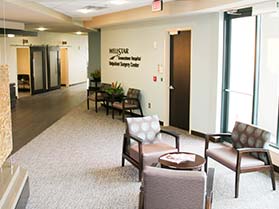Symptoms and Causes of Endometriosis

Endometriosis is a chronic condition affecting individuals with a uterus, characterized by the presence of endometrial-like tissue outside the uterus. This tissue, which normally lines the inside of the uterus, grows on other pelvic organs like the ovaries, fallopian tubes and the tissue lining the pelvis. Understanding the symptoms and causes of endometriosis is crucial for early detection and management of this often painful and challenging condition.
Symptoms of Endometriosis
The most common symptom is pelvic pain, which often worsens during menstruation. This pain can range from mild to severe and may also occur throughout the menstrual cycle. This occurs due to the endometrial-like tissue becoming inflamed as the hormone levels change, creating pressure against surrounding tissue. Other symptoms of endometriosis include:
- Painful Periods (Dysmenorrhea): Women with endometriosis commonly experience extremely painful menstrual cramps that might interfere with daily activities.
- Painful Intercourse (Dyspareunia): Endometriosis can cause pain during or after sexual intercourse, which might affect intimate relationships.
- Painful Bowel Movements or Urination: Some individuals may experience pain during bowel movements or urination, particularly during menstruation.
- Excessive Bleeding: Heavy menstrual periods or bleeding between periods could be a symptom of endometriosis.
- Infertility: Endometriosis can lead to fertility issues in some cases, making it challenging for individuals to conceive.
Endometriosis can make menstruation very uncomfortable and can impact fertility. Knowing the possible causes and treatment options can provide relief.
Causes of Endometriosis
While the exact cause of endometriosis remains unclear, several theories attempt to explain its development:
- Retrograde Menstruation: One of the prevailing theories suggests that during menstruation, instead of exiting the body through the cervix, some menstrual blood containing endometrial cells flows backward into the pelvic cavity. These cells then attach and grow on pelvic organs, causing endometriosis.
- Embryonic Cell Transformation: It is possible that hormones like estrogen might transform embryonic cells into endometrial-like cell implants during puberty.
- Surgical Scars: Following surgeries like a hysterectomy or C-section, endometrial cells might attach to surgical incision sites, leading to the development of endometriosis.
- Immune System Disorders: Issues with the immune system could prevent the body from recognizing and destroying endometrial-like tissue growing outside the uterus.
- Hormones: Estrogen, a hormone responsible for regulating the menstrual cycle, might promote the growth of endometriosis. However, this does not fully explain why some individuals with high levels of estrogen have endometriosis while others do not.
Diagnosis of endometriosis often involves a combination of medical history evaluation, pelvic exams, imaging tests like ultrasounds and sometimes laparoscopic surgery for definitive diagnosis by examining tissue samples.
Treatment approaches for endometriosis aim to manage symptoms, slow the progression of the condition, and improve fertility if desired. They can include pain medications, hormonal therapies, conservative surgery to remove endometrial implants, or, in severe cases, hysterectomy with removal of the ovaries.
Awareness about the symptoms and potential causes of endometriosis is crucial for early detection and management, facilitating a better quality of life for individuals affected by this condition. Early intervention and a comprehensive treatment plan tailored to individual needs are key in managing this complex and often challenging condition. If you have symptoms of endometriosis, Marietta OB-GYN Affiliates, P.A. offers personalized treatment plans to help you find relief. Call our office in Marietta or Powder Springs, GA, to schedule an appointment.



